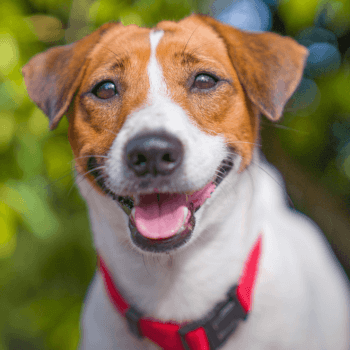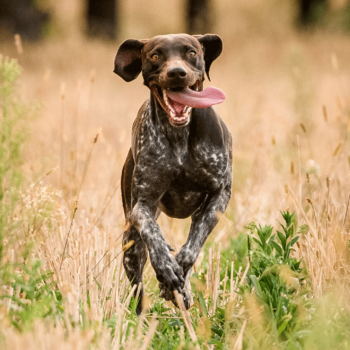Is Your Pet Scooting?
Left untreated, anal gland infections result in infection and potentially painful wounds.
by Dr. Julie Sheil, VetIQ Veterinarian
Anal Gland Expression
Anal glands, or anal sacs, are paired glands located under the skin near the anus of dogs, cats, and other animals (e.g. skunks). Each gland produces a thin, light brown fluid with a strong odor. Normally, during a bowel movement, the muscles of the anus contract, squeezing the glands and resulting in the excretion of fluid through a duct that exits at the edge of the anus. The fluid coats the feces on its way out of the body and is thought to play a role in scent marking and identification. Anal glands may also release their content during times of stress.
If the anal gland duct gets clogged, inflamed, or otherwise blocked, the fluid cannot be properly released. The longer the fluid stays inside the gland, the thicker it becomes, making it even more difficult for the contents of the gland to get out. As a result, the anal gland becomes enlarged, putting pressure on the surrounding tissues.
Signs your pet may have enlarged anal glands can include scooting the anus across the floor, licking, chewing, or biting at the anus, and/or quickly looking back toward the anus as if agitated. These behaviors are an attempt to release the contents of the gland and relieve the pressure or can signal that your animal is uncomfortable or is in pain. Your PetVet veterinarian recommends having an anal gland expression performed as soon as you notice any of the signs listed above or if you notice bloody discharge or an open wound next to your pet’s anus.
If the anal glands are not expressed regularly (either naturally or by internal expression), they can become infected. Untreated anal gland infections result in a pocket of infection called an abscess. Eventually, the abscess ruptures leaving a painful, open wound.
Causes of anal gland disease include blockage of ducts by debris, narrowing of the duct secondary to perianal inflammation (e.g. allergies, dermatitis), loose or poorly formed stool, weakness of the perianal muscles, anal gland or rectal tumors, and infections. Resolving chronic anal gland disease involves identifying and correcting any underlying causative factors and may include antibiotics, anti-inflammatories, allergy medications, diet changes, and/or infusing the anal glands with medication. In rare instances, surgical removal of the anal glands may be recommended by your PetVet veterinarian.
Proper anal gland expression involves inserting a gloved finger into the rectum and squeezing the anal gland, from both the inside and outside simultaneously, to release all of the contents of the gland. Benefits of having a PetVet veterinary professional perform an internal anal gland expression include thorough and complete emptying of each gland, evaluating for signs of infection or abscess, evaluating for signs of cancer (rectal or anal gland tumors), identification of causative factors, recommending solutions for chronic anal gland problems, and consultation about whether surgical removal should be considered.
External expression (putting pressure only on the outside of the anus) is not recommended because it will not completely empty the anal glands, especially if the contents are thick. In addition, it will not detect other anal gland related diseases such as anal gland or rectal tumors.
It’s always important to note any changes in your dog’s behavior, and if you think something may be wrong, take notes on the symptoms, and call the free PetIQ Veterinary Helpline at 1-800-775-4519.The helpline is available seven days a week, 7 a.m. – 7 p.m. A veterinary professional will be able to give you the best options to help your dog, and if needed, help you find a wellness center or community clinic near you.








